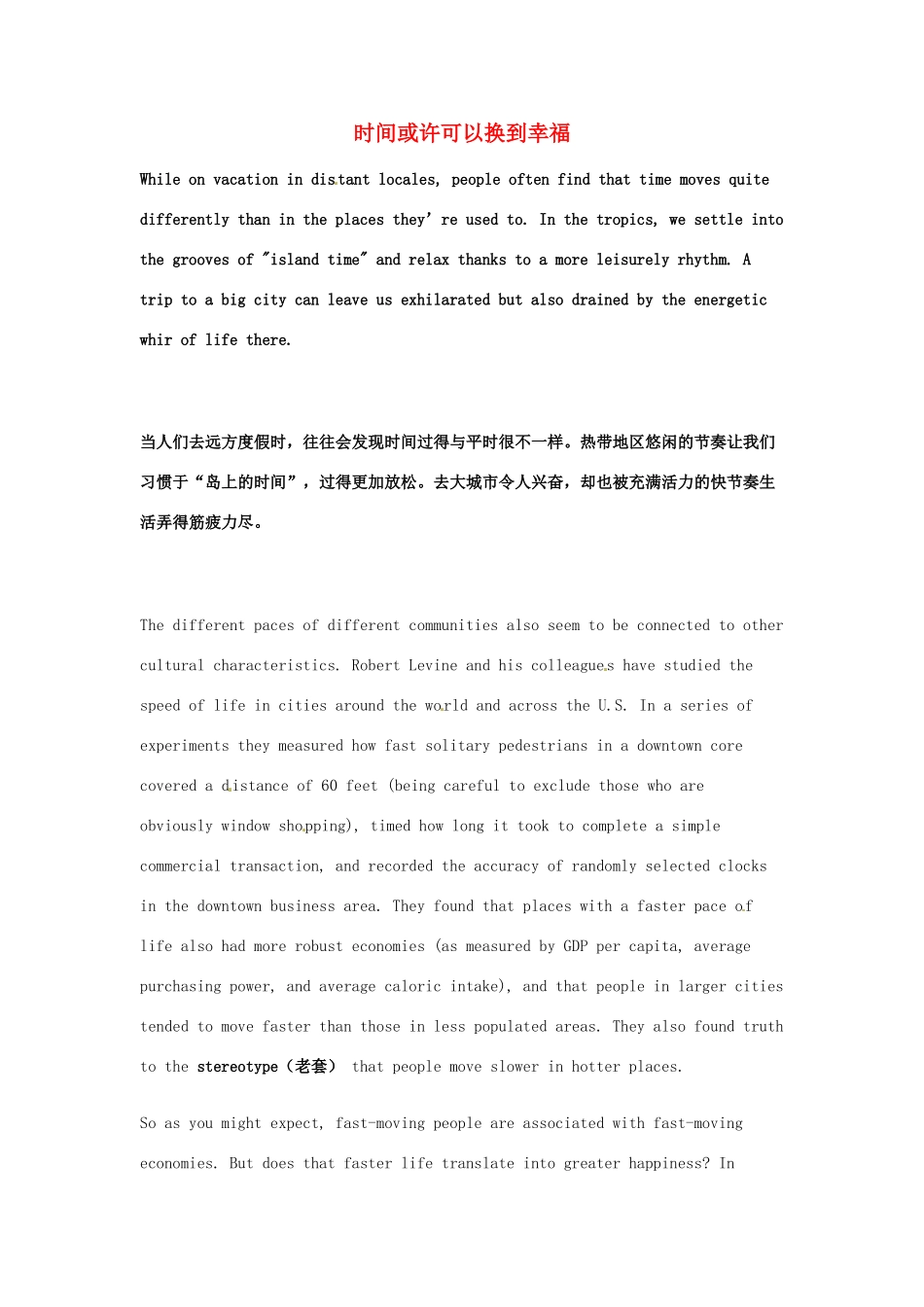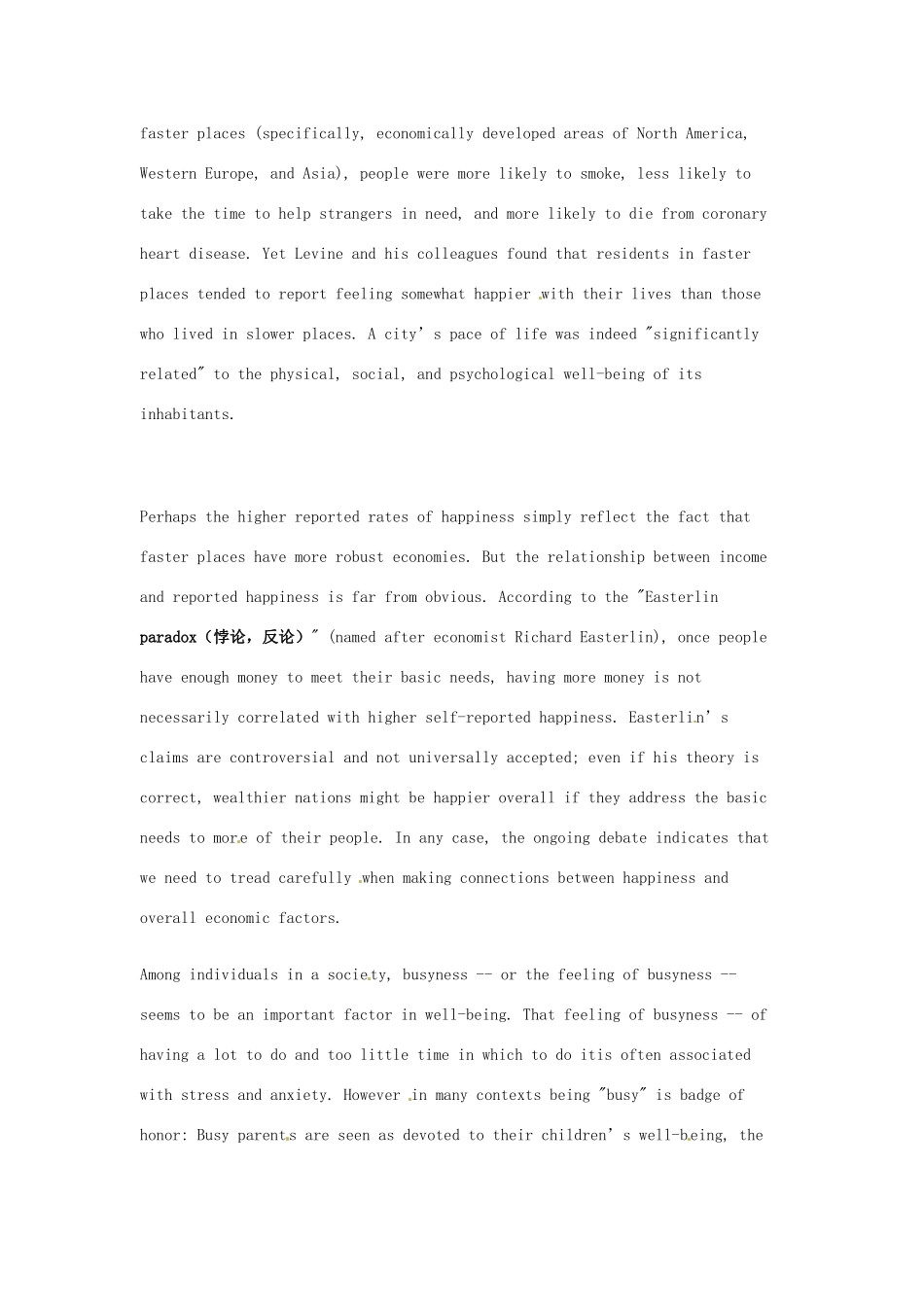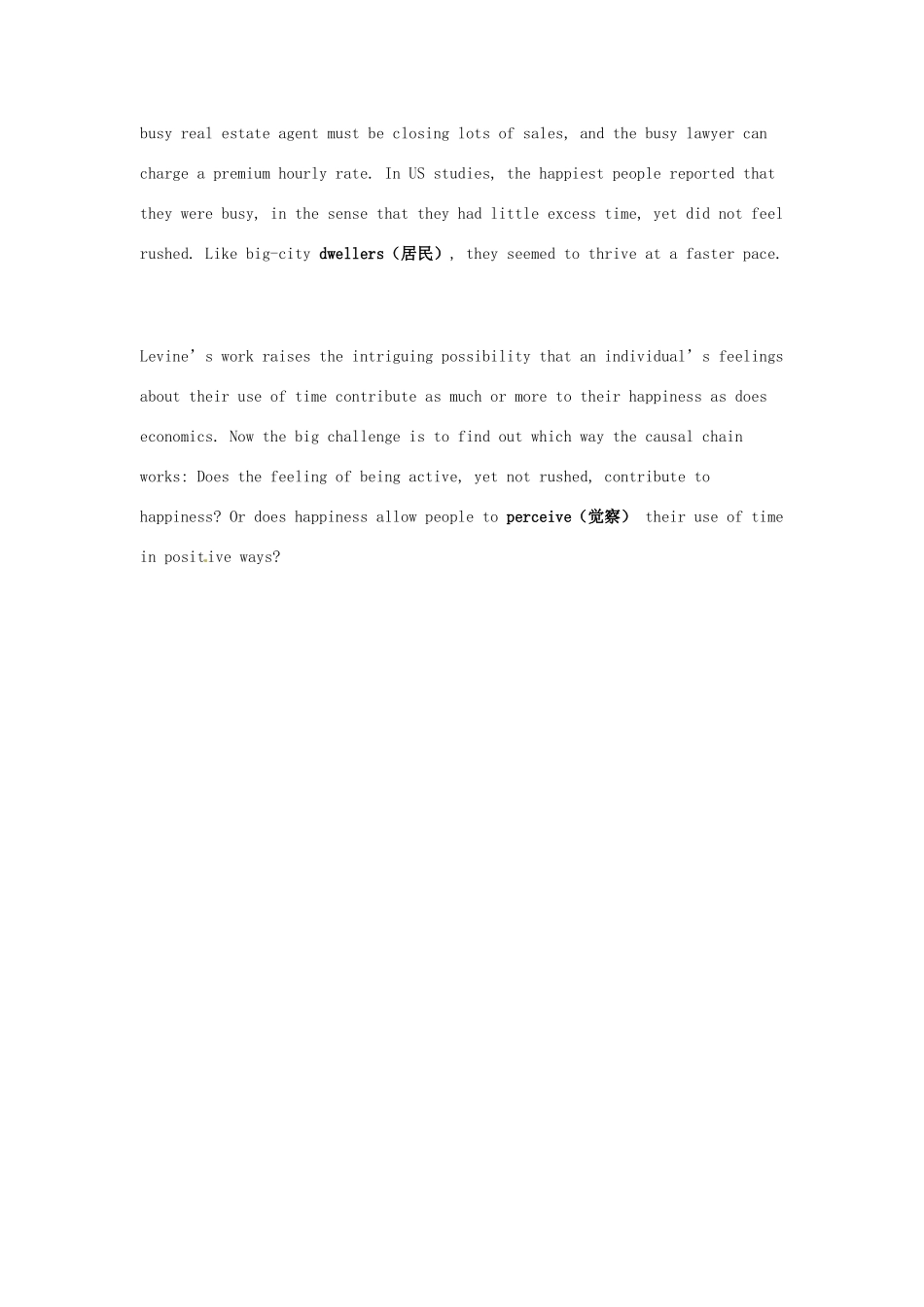时间或许可以换到幸福While on vacation in distant locales, people often find that time moves quite differently than in the places they’re used to. In the tropics, we settle into the grooves of "island time" and relax thanks to a more leisurely rhythm. A trip to a big city can leave us exhilarated but also drained by the energetic whir of life there. 当人们去远方度假时,往往会发现时间过得与平时很不一样。热带地区悠闲的节奏让我们习惯于“岛上的时间”,过得更加放松。去大城市令人兴奋,却也被充满活力的快节奏生活弄得筋疲力尽。 The different paces of different communities also seem to be connected to other cultural characteristics. Robert Levine and his colleagues have studied the speed of life in cities around the world and across the U.S. In a series of experiments they measured how fast solitary pedestrians in a downtown core covered a distance of 60 feet (being careful to exclude those who are obviously window shopping), timed how long it took to complete a simple commercial transaction, and recorded the accuracy of randomly selected clocks in the downtown business area. They found that places with a faster pace of life also had more robust economies (as measured by GDP per capita, average purchasing power, and average caloric intake), and that people in larger cities tended to move faster than those in less populated areas. They also found truth to the stereotype(老套) that people move slower in hotter places.So as you might expect, fast-moving people are associated with fast-moving economies. But does that faster life translate into greater happiness? In faster places (specifically, economically developed areas of North America, Western Europe, and Asia), people were more likely to smoke, less likely to take the ti...


